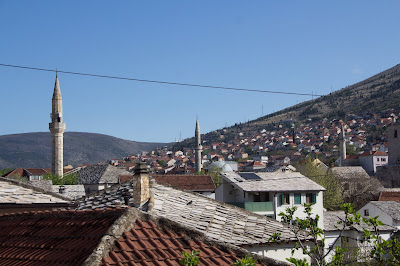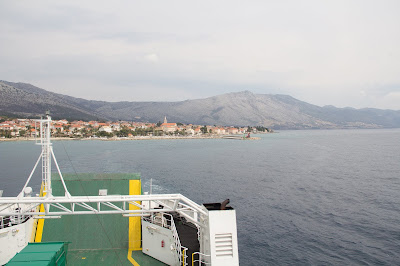Monday, April 29, 2019
Book Notes: Paul by Tom Wright
Tom Wright's biography of Paul (also known as Saul of Tarsus, Saint Paul or Paul the Apostle) is a brilliant read. I took it on holiday a few weeks ago, and couldn't put it down. One doesn't need to be a fully-signed up devotee of every nuance of Wright's sometimes controversial interpretations of Paul's theology to get a huge amount from this book either.
Wright has done a brilliant job at piecing together the known facts about Paul into a seamless narrative which takes into account his background, training, work, "zeal", transformation on the Damascus Road, periods of silence, the development of his circle, churches, ideas and mission; the Acts narratives and epistles. If working all that into a coherent story wasn't an achievement in itself, Wright adds a layer of complexity to this, by interacting masterfully between the biblical story and theology, and the historical and cultural background in which it is set.
Paul emerges from Wright's treatment as both a more human figure and more sympathetic figure than many previous attempts to understand him. Luke's account is so action packed, and Paul so 'heroic' that it is only when we engage with his letters and how he was processing his challenges and struggles, that the man himself comes into focus. Wright's view that Paul endured a long and painful Ephesian imprisonment, which wounded, humbled and matured the 'later Paul' is highly probable, and adds great light to some of his subsequent 'flesh-thorned' words. The struggles with the shifting loyalties of some his churches, both to doctrine and to him personally are likewise woven into the story of this vulnerable, driven, brilliant man. Wright's speculations about Paul's inner struggles (is my mission all worth it, will there be anything to show for it?), are as he admits, extrapolations from the evidence; but not far-fetched or ludicrous ones, and all add to the drama, and indeed pathos.
The insights into Paul's theology, of course revolve around Wrights angle on the so-called 'New Perspective'. However, there is much, much more to the ideas woven through this book than that. Wright might somewhat overdo rehearsing his contentions that justification by faith is a badge by which to identify those loyal to Christ, rather than a method of achieving reconciliation with God; and his debunking of gnostic soul-only visions of other-wordly non-physical salvation; but that repetition aside, it is tremendous. From time-to-time, critics have appeared who have attempted to drive a wedge between the message of the four gospels and Paul's gospel. In some ways, this book might actually form the perfect rebuttal to those critics. Wright has done a stunning job of demonstrating the deeply, profoundly and completely Jewish/Old Testament saturated world-view of Paul, both before and after the Damascus Road transformation. Another theme that Wright expands on rather well are the debates surrounding the transmission of this message about Jesus the Jewish Messiah into the Gentile world of Greeks and Romans. Paul's insistence that Gentile believers did not have to become culturally Jewish in order to have table fellowship with what might today be called 'Messianic-Jews' is profoundly explored, alongside the Acts narratives of disputes, and the relevant combative sections of the epistles - notably those to the Galatians and Romans.
What makes this book even more pleasing is the fact that Wright's easy prose enables the reader to easily immerse themselves in the cultural, religious, doctrinal, political world of the 1st Century without feeling as if they are working too hard! I continue to have some reservations about whether we really have completely misread Paul through the eyes of Luther- and if Wright isn't over-compensating rather a lot to any error there; but that doesn't change the fact that this book has brought the world of the New Testament alive in my understanding and imagination like few other reads. It is well indexed by topic, author and scripture too, making a resource to which I can return again and again.
Five sides of Mostar
Mostar is a place with a unique atmosphere. The predominantly Muslim eastern city is studded with the minarets of mosques while Catholic church spires reach skyward on the west. This is the point at which two ancient civilisations meet. Communist era brutally-functional concrete architecture remains across the city, a reminder of the days of Tito's Yugoslavia. Bomb damaged and bullet strafed buildings remain throughout the city, where the Balkan wars of the 1990s feel more recent than in the tourist hot-spots of the Croatian Coast. Then, a whole range of new, post-war buildings, like the Mostar Hotel rub shoulders with all of the above. A place once visited, never forgotten.
Friday, April 26, 2019
Tuesday, April 23, 2019
Monday, April 22, 2019
Subscribe to:
Posts (Atom)





















































